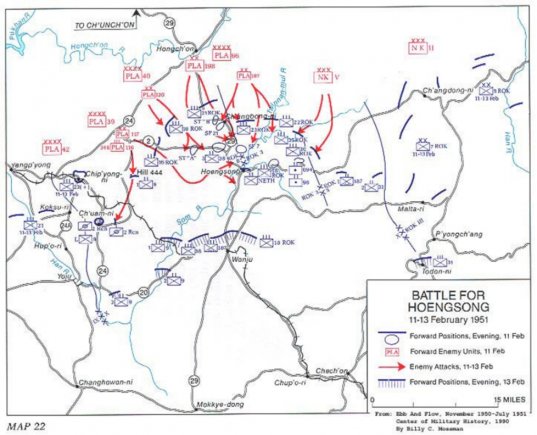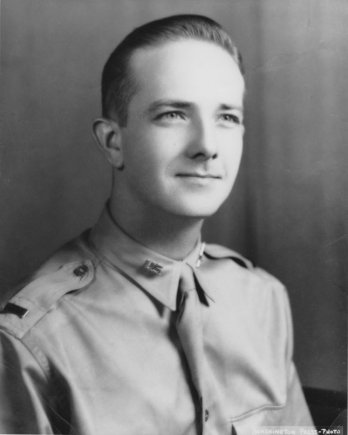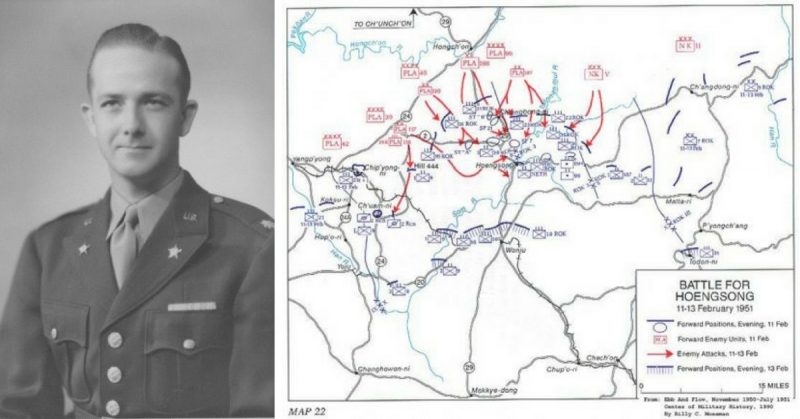War History online proudly presents this Guest Piece from Chap. (Maj.) Thomas A. Brooks.
Remember – Memorial Day is a time to remember the ordinary and extraordinary heroes who died fulfilling the call of our nation to war. Thousands upon thousands of stories remain untold — yet how much more will all of us benefit from pausing to remember the specific journey of one of the fallen?
Col. John W. Keith Jr. is such a man. This Army officer gives us much to ponder, from the heroic to the tragic, from high action to eerie stillness. In many ways, his life and death provide the pattern for the Korean War itself — at first, undulating and chaotic advances and retreats across vast swaths of the Korean peninsula. Subsequently, stalemate and stagnation — and this entire situation lingers with the ongoing tension of that which is unresolved.
During this period, Keith served as a lieutenant colonel. Keith embedded himself deeply into the saga of the Korean War. Within the first 10 months of the war he bravely and aggressively fought the enemy, distinguishing himself as a commander in battle. In yet another campaign, he later defended against overwhelming odds to the bitter end of his own capture, interrogation, malnutrition, abuse and disease. He died at the end of April 1951, his remains apparently trapped and unrecovered in North Korea. Despite the lack of remains, this Memorial Day weekend Col. Keith (promoted posthumously) will receive full military honors. Of immediate family, only his son John and his daughter Marilyn remain. Marilyn was only three years old when she lost her father.
Though faded in the memories of many Americans, the Korean War was gritty, brutal and tragic. It presented a mixture of severe defeats and significant victories. It resulted in freedom for the South and unrelenting oppression for the North. The North Koreans crossed the dividing line — the 38th parallel — and invaded South Korea on June 25, 1950. Within a few months, they overran the majority of South Korea, leaving only a small portion in the southeast now known as the Pusan Perimeter.

Woven within this big picture of initial actions of the Korean War, Keith as commanding officer of the 15th Field Artillery Battalion, 2nd Infantry Division, displayed heroism that we would all do well to reflect upon. His award citation details his actions: He “distinguished himself by heroic achievement on 1 September 1950 in the vicinity of Yongsan, Korea. On this date enemy forces had penetrated the defensive lines of the infantry regiment which his battalion was supporting. Despite the danger of having his positions overrun, he kept his battalion in position and delivered a continuous barrage of fire which caused severe casualties upon the enemy. When enemy small arms fire finally forced the withdrawal of the battalion he personally and with complete disregard for his own safety supervised the displacement of the batteries. He continually exposed himself to enemy artillery, mortar and small arms fire throughout the day and displaced his batteries at the last possible moment. The continuity and volume of fire that was made possible by the actions of Colonel Keith slowed the advance of the enemy forces until the infantry could reorganize and reestablish a final line of resistance. Colonel Keith’s outstanding display of leadership and heroism reflects great credit upon himself and is in keeping with the high traditions of the military service.”
To put it bluntly, this senior commander did not shy away from putting it all on the line to resist the enemy and serve his nation. This is a leader who forgot himself and gave undivided focus upon the fulfillment of the mission that we, the American people, gave to him.
Reread that citation. Place yourself in his shoes. Listen to the overwhelming sounds of the battle. Take in the sights of multitudes of enemy soldiers, of the wounded and dead, and of the wearied yet determined faces of American Soldiers in his care.
Over the next several months the war continued; for Keith and his men, it came to a head with the Battle of Hoengsong, Feb. 11-13, 1951. Four Communist Chinese Forces divisions and two North Korean divisions swarmed vastly outnumbered U.S. and South Korean units. Not highlighted at the time for political reasons, the result was nothing short of a massacre. Hundreds of American infantry and artillery Soldiers were killed. The unit under Keith’s command, the 15th Field Artillery Battalion had more than 200 killed in action.
These Soldiers faced superior numbers, constant mortar fire and relentless rifle shots from high ridges on either side of the valley. They defended aggressively and desperately — raining, while they could, massive amounts of fire upon the enemy — and providing ongoing resistance, even to the point of hand-to-hand combat. Yet in the end, they were entirely cut off, and many were killed or captured.
Weeks later, U.S. Marines entered the area, now a virtual graveyard with dead bodies, literally frozen, strewn about where they had fallen. In the official investigative report of the battle, it was determined that Keith and other leaders of the 15th FA Bn. displayed “strong, courageous and aggressive” leadership. Sgt. Charles Long with the 38th Infantry Regiment, a forward observer for mortars, valiantly kept back the enemy with his rifle and grenades. His last words requested 40 rounds to be placed on his own position to kill the enemy soldiers gathering there. Long was posthumously awarded the Medal of Honor. His actions illustrate both the desperate nature of the battle and the acts of bravery demonstrated by many U.S. Soldiers.

Crushed by impossible odds, Keith and others captured were not at the end of their story. In many ways, their real pain and suffering were only beginning. These prisoners were agonizingly marched through severe terrain and weather. Key prisoners like Keith were mercilessly interrogated and mistreated. Keith, malnourished and likely suffering from pneumonia, died at the end of April 1951 at an interrogation center near Pyongyang. To this day, the North Koreans have impeded efforts to survey the area for remains. Just like the Korean War itself, family members are suspended, still waiting for the discovery of his remains. One can only strive to imagine the unending decades — literally decades — waiting for closure. Absent that, the family proceeded to allow full military honors to be given this Memorial Day weekend at Mount Hope Cemetery in Topeka, Kansas.
We, too, should honor his service and the sacrifice of other service members and their families. For many of us, the Korean War seems vague and distant. I can promise you that it daily remains for affected family members — some of whom are burdened with additional issues such as unrecovered remains.
Keith made a difference — to his family, to the Soldiers he fought alongside and to his nation. As John Donne wrote, “no man is an island, entire of itself.” Keith’s actions ripple forward into our present time. However, it is our responsibility to remember.
Actively remembering such service members and their actions will do much for us. It will inspire gratitude. More significantly for many service members, it should provoke careful consideration of the lessons of history and the unspeakable costs of war.
We depend on the American people to carefully weigh the pros and cons of any decision to go to war — knowing enough of history and human nature — and to judiciously make decisions to go or not go accordingly. In this broken world, the correct course of action will frequently be unclear and the results mixed. Nonetheless, the gravity of the decision should press heavily upon us.
The Korean War eventually shifted from fast-moving battle lines with raging war over vast swaths of Korean territory — to that of stalemate. Ultimately, it became suspended in 1953 with an armistice. So technically, the war has never ended, and we will never quite know whether or when a hot war will re-break again, inflaming and engulfing the peninsula in another grim and tragic nightmare. The results of the Korean War are mixed but worthy. Our South Korean alliance and friendship is enduring and of great value.

Keith’s record in Korea displays bravery and astute leadership. It ended in captivity and death. Like the war itself that is held in an armistice, the status of his remains is unresolved. Though many are hoping and working for an unforeseen breakthrough, the search continues without end in sight. This lack of recovery inhibits the sort of closure we would all want for our loved ones.
Thank you, Col. John W. Keith Jr., for your exemplary service and sacrifice for your country. You did what your country asked, and you did it without regard for yourself. We thank your family as well for enduring loss and the prolonged agony.
Forgive us for not thinking more of the fact that the war continues for your family and other families like yours who lack the ability to lay their service member’s remains to a dignified and final rest. We afresh remember that you have borne a disproportionate share of the burden. We can hardly begin to imagine your journey of almost seven decades and with our best efforts can only scratch the surface of what you have endured.
As American citizens, may each of us go forward from this Memorial Day with renewed gratitude, perspective, and wisdom for decisions faced as a republic which profoundly impact service members and their loved ones.
